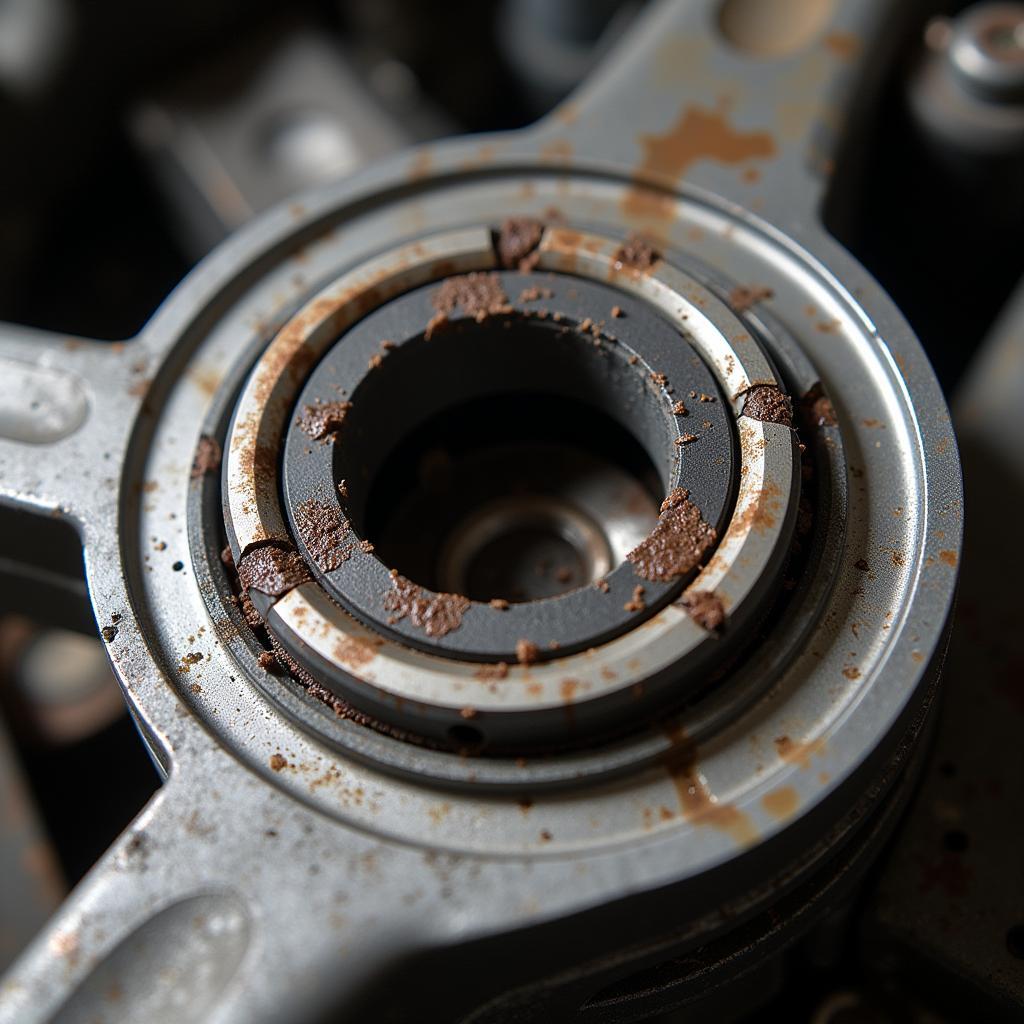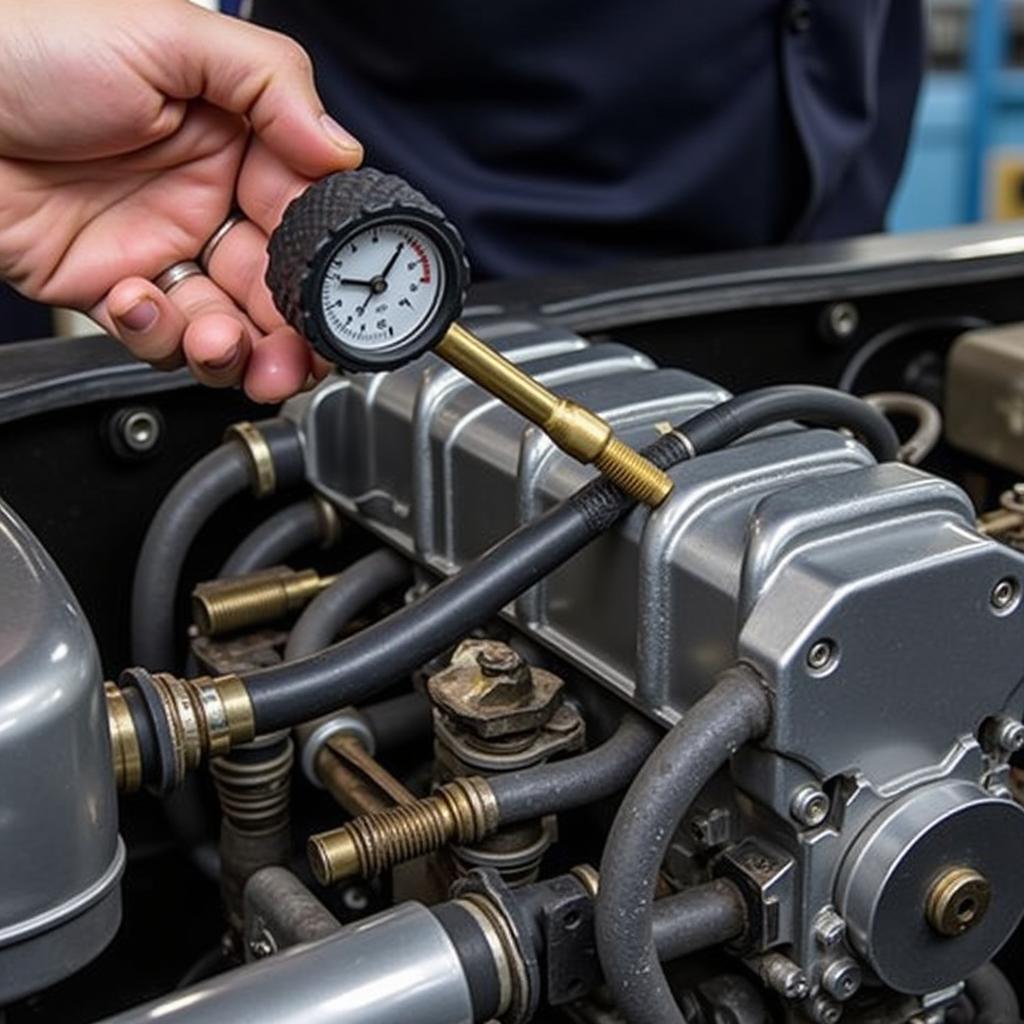Low compression in a car engine can lead to a variety of performance issues, from reduced power and fuel efficiency to difficulty starting. Understanding What Causes Compression Problems In A Car is crucial for any car owner, mechanic, or automotive technician. This article will delve into the common culprits behind compression issues, offering insights into diagnosis and potential solutions.
Compression is the heart of your engine’s power. It’s the process of squeezing the air-fuel mixture in the cylinder before ignition. This compression builds pressure, creating a powerful explosion that drives the piston and ultimately powers your vehicle. When this process is compromised, your car’s performance suffers. Several factors can contribute to low compression. Let’s explore them in detail.
Common Causes of Low Compression
Several components within your engine can contribute to low compression. Identifying the root cause is the first step towards an effective repair.
Worn Piston Rings
Piston rings are designed to seal the combustion chamber and prevent gases from escaping. Over time, these rings can wear down, lose their elasticity, and allow compression to leak. This leads to decreased pressure and power loss.
 Worn Piston Rings Leading to Low Compression Issues in Car Engines
Worn Piston Rings Leading to Low Compression Issues in Car Engines
Damaged Valves
The intake and exhaust valves play a vital role in regulating the flow of gases into and out of the combustion chamber. If a valve is burnt, warped, or otherwise damaged, it can’t seal properly, allowing compression to escape. This can result in a rough idle, misfires, and decreased power.
Leaking Head Gasket
The head gasket seals the gap between the engine block and the cylinder head. A blown head gasket can create a pathway for compression to leak into the coolant passages or even outside the engine. This can lead to overheating, coolant loss, and white smoke from the exhaust.
Worn Cylinder Walls
Over time, the cylinder walls can become worn or scored, especially in high-mileage engines. This wear can prevent the piston rings from sealing effectively, leading to compression loss. This often requires a more extensive engine rebuild.
Timing Chain Issues
A worn or stretched timing chain can cause the valves to open and close at the incorrect times, disrupting the compression cycle. This can lead to a variety of problems, including low compression, misfires, and even catastrophic engine damage. You might want to check out cars with timing chain problems for more information on this. More on this can be found at cars with timing chain problems.
Diagnosing Compression Problems
Diagnosing low compression typically involves a compression test. This test measures the pressure in each cylinder, providing valuable insights into the engine’s health. A noticeable difference in pressure between cylinders often indicates a problem.
Performing a Compression Test
A compression test involves removing all the spark plugs and then using a compression gauge to measure the pressure in each cylinder while cranking the engine. This allows mechanics to pinpoint the cylinder(s) with low compression and narrow down the potential causes. Check out this resource on cylinder problem in car for more details.
 Performing a Compression Test on a Car Engine
Performing a Compression Test on a Car Engine
What if Sebastian Vettel had compression problems?
Imagine the frustration of a Formula 1 driver like Sebastian Vettel experiencing compression problems mid-race. The loss of power and performance would be devastating. While you might not be racing at 200 mph, the principle remains the same. Maintaining proper compression is crucial for your car’s reliability and performance. You can read more about sebastian vettel car problem. Starting a diesel car in cold weather can also lead to compression related issues, so you might find our article on diesel car cold start problem helpful. Lastly, issues with the rocker arm can also contribute to problems, as discussed in our article on car problem rocker.
“Low compression can be a real headache. It’s like trying to run a marathon with a sprained ankle. You just can’t perform at your best,” says John Miller, a seasoned mechanic with over 20 years of experience.
Conclusion
Understanding what causes compression problems in a car is essential for maintaining its performance and longevity. From worn piston rings and valves to a leaking head gasket, various factors can contribute to this issue. By addressing these problems promptly and effectively, you can ensure your car runs smoothly and efficiently for years to come. Contact AutoTipPro at +1 (641) 206-8880 or visit our office at 500 N St Mary’s St, San Antonio, TX 78205, United States for assistance.






Leave a Reply